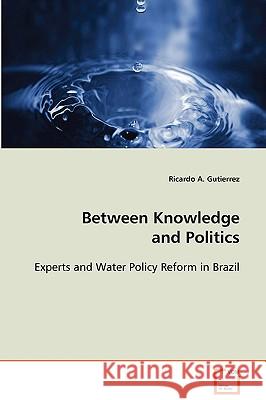Between Knowledge and Politics - Experts and Water Policy Reform in Brazil » książka
Between Knowledge and Politics - Experts and Water Policy Reform in Brazil
ISBN-13: 9783639087291 / Angielski / Miękka / 2008 / 264 str.
While much has been written on how political structures, institutional factors, and economic shocks constrain and shape the formulation and implementation of new policy ideas, this book brings to the fore the role of experts as political actors and agents of policy reform. By comparing the introduction of a new water management model in three Brazilian states, it focuses on how experts deploy different mechanisms to get political and social support for the approval and implementation of new policy ideas envisioned as part of their daily job. The analysis should be useful to scholars and policy participants involved in the management of natural resources, especially those interested in the introduction of participatory management models. It should also be useful to social scientists devoted to the comparative study of public policies or with a particular interest in the interaction between expertise and politics in policy making and innovation.
While much has been written on how political structures, institutional factors, and economic shocks constrain and shape the formulation and implementation of new policy ideas, this book brings to the fore the role of experts as political actors and agents of policy reform. By comparing the introduction of a new water management model in three Brazilian states, it focuses on how experts deploy different mechanisms to get political and social support for the approval and implementation of new policy ideas envisioned as part of their daily job. The analysis should be useful to scholars and policy participants involved in the management of natural resources, especially those interested in the introduction of participatory management models. It should also be useful to social scientists devoted to the comparative study of public policies or with a particular interest in the interaction between expertise and politics in policy making and innovation.











